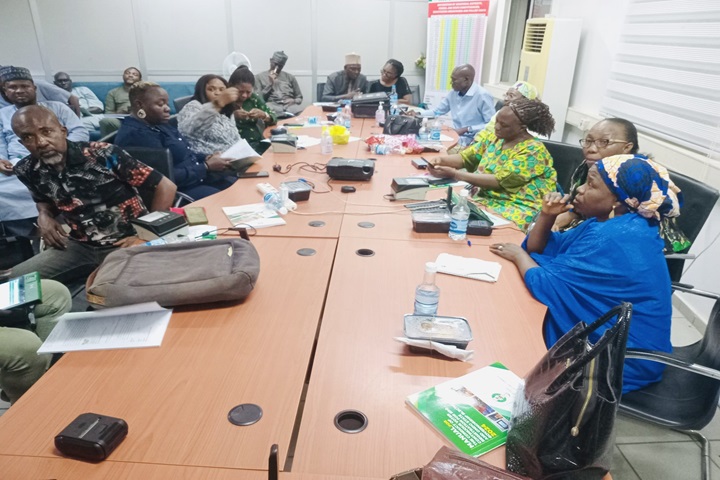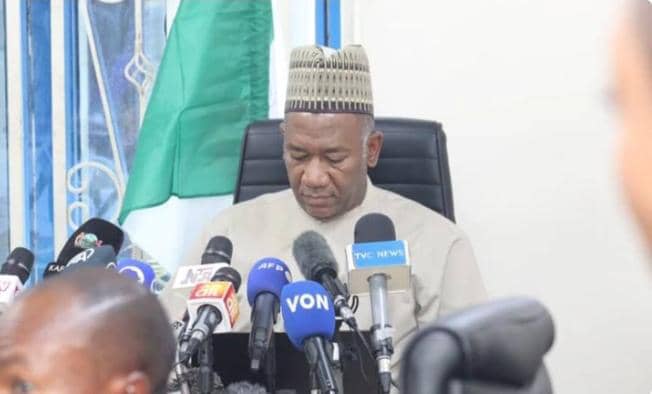Editorial
EDITORIAL: Upgrade, don’t shut down prisons: A call for reforms

Diaspora Digital Media kicks against the Nigerian government’s proposal to reduce the number of custodial centers in Nigeria from 256 to an unspecified number.
While the government argues that many facilities are underutilized, operating at a mere 30-40 percent capacity, the reality is far more complex and precarious.
Nigeria’s prisons are plagued by systemic issues, including severe overcrowding, inhumane conditions, and a lack of basic resources.
Rather than shutting down prisons, the government must prioritize upgrading and reforming the existing system to address deep-rooted problems.
Nigeria’s correctional facilities are in a state of crisis. According to the Nigerian Correctional Service, as of 2024, the country’s prisons house approximately 76,000 inmates, despite being designed to accommodate just 50,000.
This overcrowding is exacerbated by the fact that over 70% of inmates are awaiting trial, many of whom have been detained for years without due process.
The United Nations has repeatedly highlighted the inhumane conditions in Nigerian prisons, including inadequate healthcare, poor sanitation, and insufficient food supplies.
In some facilities, inmates sleep in shifts due to a lack of space, while others are forced to endure extreme heat and unsanitary environments.
The infrastructure of many prisons is dilapidated, with reports of leaking roofs, broken toilets, and inadequate ventilation.
In 2022, a report by the Prison Rehabilitation and Welfare Action revealed that only 40% of Nigerian prisons have access to clean water, and even fewer have functional medical facilities.
These conditions not only violate human rights but also contribute to the spread of diseases such as tuberculosis and COVID-19, which have ravaged the prison population.
The government’s rationale for shutting down prisons—citing underutilization and cost-cutting—fails to address the root causes of the problem.
While some facilities may be operating below capacity, others are bursting at the seams.
For instance, the Ikoyi Correctional Centre in Lagos, designed for 800 inmates, currently houses over 3,000. Simply redistributing inmates to less congested facilities, as proposed by the Minister of Interior, Dr. Olubunmi Tunji-Ojo, is not a sustainable solution unless these facilities are upgraded to meet basic human standards.
Moreover, shutting down prisons could have unintended consequences, including job losses for prison staff and economic downturns for communities that rely on these facilities for employment.
It also risks exacerbating overcrowding in remaining prisons, further straining already limited resources.
Instead of closing prisons, the government should invest in comprehensive reforms to modernize and humanize the correctional system.
This includes renovating existing facilities to provide adequate living conditions, including proper ventilation, sanitation, and healthcare services.
Addressing the root cause of overcrowding by expediting the trial process for awaiting-trial inmates is also crucial.
The government should work with the judiciary to implement fast-track courts and alternative dispute resolution mechanisms to reduce the backlog of cases.
Prioritizing rehabilitation programs, such as education, vocational training, and mental health services, will prepare inmates for reintegration into society.
Countries like Norway have demonstrated that a focus on rehabilitation significantly reduces recidivism rates and creates safer communities.
Expanding the use of non-custodial measures, such as parole, probation, and community service, for non-violent offenders would alleviate overcrowding and allow prisons to focus on rehabilitating high-risk inmates.
Allocating more resources to the Nigerian Correctional Service and establishing independent oversight bodies to ensure accountability and transparency in prison management are also essential steps.
The challenges facing Nigeria’s prison system are not insurmountable, but they require political will and sustained investment.
Shutting down prisons without addressing the underlying issues is a shortsighted solution that risks perpetuating the cycle of neglect and abuse.
By upgrading and reforming the existing system, the government can create a correctional system that upholds human dignity, promotes rehabilitation, and contributes to national security.
The Federal Government must abandon its plan to shut down prisons and instead focus on comprehensive reform.
The current state of Nigeria’s correctional facilities is a stain on the nation’s conscience, and only through decisive action can we build a system that truly serves justice and humanity.
The time for half-measures is over; Nigeria’s prisons need transformation, not termination.
For Diaspora Digital Media Updates click on Whatsapp, or Telegram. For eyewitness accounts/ reports/ articles, write to: citizenreports@diasporadigitalmedia.com. Follow us on X (Fomerly Twitter) or Facebook












